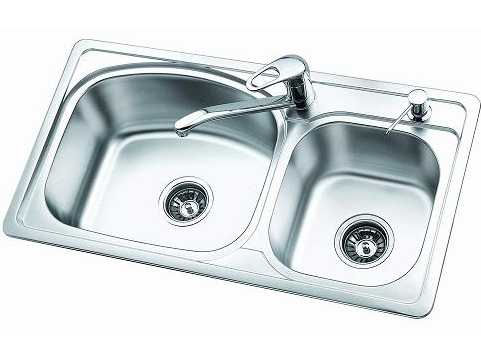Steel Rope Wire,Stainless Wire Rope,Stainless Steel Wire Rope,Stainless Steel Aircraft Cable Jiangsu Hongze Stainless Steel Wire Rope Co., Ltd , https://www.hzrope.com The kitchen is the heart of the home, where meals are prepared and family gatherings often begin. However, it's also one of the most challenging areas to keep clean due to food residue, grease, and constant use. Among all the kitchen fixtures, the sink plays a central role—it's where we wash dishes, rinse vegetables, and even prepare ingredients. Therefore, proper maintenance of your kitchen sink is essential not only for its longevity but also for maintaining good hygiene and health.
Stainless steel sinks are the most common choice today, thanks to their durability and resistance to corrosion. These sinks have a thin layer of chromium oxide on their surface, which acts as a protective barrier against rust and staining. It's crucial not to damage this layer, as once it's compromised, the sink becomes more prone to rust and difficult to clean.
When cleaning your sink, always opt for mild, non-abrasive detergents. Harsh chemicals can strip away the protective coating and cause long-term damage. After washing, make sure to rinse the sink thoroughly with clean water to remove any soap residue.
If you accidentally pour soup or broth into the sink, don't leave it there. Rinse it out immediately with warm water. The salt and acids in the liquid can corrode the sink over time, especially if left unattended.
Avoid using sharp objects like knives or forks directly on the sink's surface. Not only can this scratch the finish, but it may also damage the protective layer. If you need to cut vegetables, use a cutting board instead.
When installing a new sink, be cautious about using chemical cleaners or substances during the installation process. These can potentially damage the sink’s surface. Before using it for the first time, give it a thorough rinse and consider applying a thin layer of vegetable oil, such as soy or peanut oil, to the surface. This helps create a barrier that prevents harmful chemicals from sticking to the sink.
By following these simple tips, you can ensure your kitchen sink remains in excellent condition for years to come, making your daily cooking and cleaning tasks much easier and more hygienic.
The kitchen is the heart of the home, where meals are prepared and family gatherings often begin. However, it's also one of the most challenging areas to keep clean due to food residue, grease, and constant use. Among all the kitchen fixtures, the sink plays a central role—it's where we wash dishes, rinse vegetables, and even prepare ingredients. Therefore, proper maintenance of your kitchen sink is essential not only for its longevity but also for maintaining good hygiene and health.
Stainless steel sinks are the most common choice today, thanks to their durability and resistance to corrosion. These sinks have a thin layer of chromium oxide on their surface, which acts as a protective barrier against rust and staining. It's crucial not to damage this layer, as once it's compromised, the sink becomes more prone to rust and difficult to clean.
When cleaning your sink, always opt for mild, non-abrasive detergents. Harsh chemicals can strip away the protective coating and cause long-term damage. After washing, make sure to rinse the sink thoroughly with clean water to remove any soap residue.
If you accidentally pour soup or broth into the sink, don't leave it there. Rinse it out immediately with warm water. The salt and acids in the liquid can corrode the sink over time, especially if left unattended.
Avoid using sharp objects like knives or forks directly on the sink's surface. Not only can this scratch the finish, but it may also damage the protective layer. If you need to cut vegetables, use a cutting board instead.
When installing a new sink, be cautious about using chemical cleaners or substances during the installation process. These can potentially damage the sink’s surface. Before using it for the first time, give it a thorough rinse and consider applying a thin layer of vegetable oil, such as soy or peanut oil, to the surface. This helps create a barrier that prevents harmful chemicals from sticking to the sink.
By following these simple tips, you can ensure your kitchen sink remains in excellent condition for years to come, making your daily cooking and cleaning tasks much easier and more hygienic.